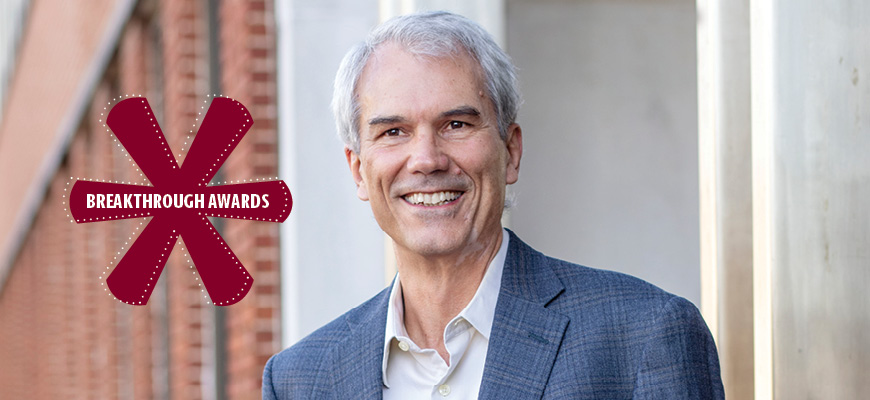
Breakthrough Leader: Ron Benner
Marine science professor takes collaborative approach to research
Posted on: April 21, 2020; Updated on: April 21, 2020
By Page Ivey, pivey@mailbox.sc.edu, 803-777-3085
Marine science professor Ron Benner took a roundabout route into his field, first majoring in physical education, then traveling for a year on a sailboat. But his efforts to mentor graduate students and younger faculty members in the years since then have been very intentional.
“I came in through the back door,” Benner says. “I always liked the ocean and decided that maybe that would be a good thing to go into — something to do with the ocean. So, I had to go back to school and start over again.”
Because of that restart, the veteran professor and researcher makes a point of involving his graduate students in a teamwork approach to research as well as providing leadership to younger faculty working their way up the ranks.
Collaborative research in general is a more powerful approach, especially in research that requires expertise in a lot of different areas.
Ron Benner, marine science professor
“There’s a real need in science, in general, to be able to talk about it with your colleagues,” Benner says. “That’s an enriching experience for everybody. It fosters the exchange of ideas and development of new concepts. It benefits our research program as well as the research of our colleagues.”
As director of the marine science program at the University of South Carolina, he oversaw the program’s transition into the School of the Earth, Ocean and Environment, which awards degrees at all levels of study and gives students interested in the environment a wide-ranging and integrated curriculum. He also teaches a variety of courses ranging from Ph.D. level to undergraduate, including an Honors College class, “The Living Ocean.”
His own research focuses on the carbon, nitrogen and phosphorus cycles in the ocean and climate change. He has published 208 peer-reviewed papers that have been cited over 27,600 times — making him among the top researchers in his field. Benner also has provided much-needed oceanographic data to major national and international programs.
“My laboratory group has analyzed organic carbon and nitrogen concentrations in hundreds of water samples as a service for UofSC faculty and colleagues at other institutions,” he says. “Collaborative research in general is a more powerful approach, especially in research that requires expertise in a lot of different areas.”
Benner notes that his students have gone on to have significant careers in academia as well as environmental agencies, including the National Oceanic and Atmospheric Administration and the U.S. Geological Survey. He also has hosted more than 20 visiting scholars from many countries.
“That has built bridges to many places for myself and my students, and it’s opened up awareness of the University of South Carolina and what’s here,” Benner says. “The world is a small place. It’s very important to be engaged in international programs.”